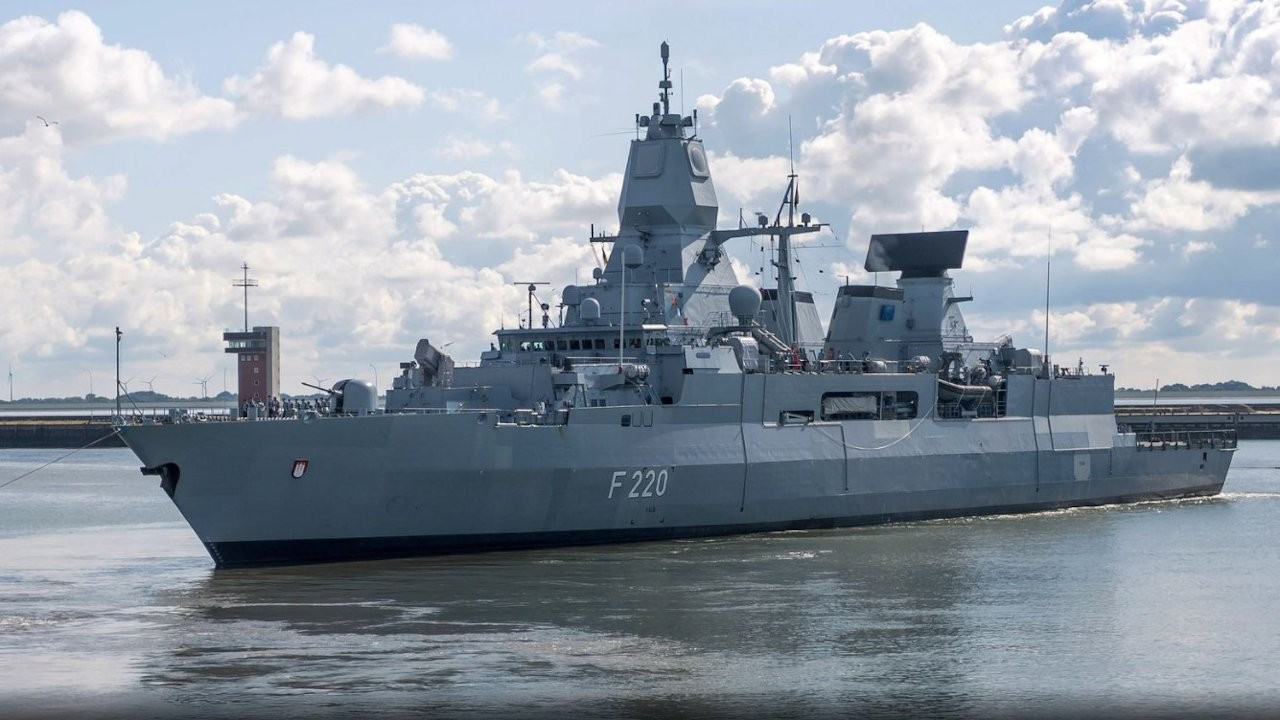EU rejects Ankara's protest against interception of Turkish vessel, says operation was in line with NATO procedures
The EU has rejected the complaints of Turkey regarding the interception of a Turkish vessel en route to Libya, says the mission called “Operation Irini” followed all the protocols. Operation Irini was launched by the EU on March 31 to monitor and enforce the UN Security Council Resolution banning arms shipments to Libya.
Duvar English
The European Union has released a statement with regards to the recent search of a Turkish-flagged ship en route to Libya, saying that Turkey's protests were unjustified as the inspection of the ship was undertaken “in accordance with internationally agreed procedures including NATO procedures.”
German soldiers from the frigate Hamburg on Nov. 22 boarded the Turkish-flagged cargo ship Roseline A, as part of a European Union mission enforcing U.N. arms embargo called Operation Irini. The search came after the EU suspected the ship of taking weapons to Libya illegally.
Ankara said the ship was carrying humanitarian aid and that the German team violated international law by not waiting for Turkish permission to board the Rosaline A. It later summoned the EU, German and Italian envoys to Ankara to protest.
Turkish Foreign Minister Mevlüt Çavuşoğlu on Nov. 24 said the boarding was an act of "piracy" and Ankara would "respond on the ground, as well as pursuing legal and political processes."
The EU said that after four hours had passed with no reply to a request to board, it was standard practice to consider this as implicit permission. It said that the Operation Irini had “reasonable grounds” to suspect that the Turkish ship could be acting in violation of the UN arms embargo.
“Operation IRINI even agreed to extend this notice by an additional hour at the request of the Turkish Embassy in Rome, where Operation IRINI’s Headquarters are located. Having received no answer from Turkey after the elapsed time, Operation IRINI boarded the vessel and inspected it in accordance with internationally agreed procedures including NATO procedures,” it said.
The EU said that the inspection was suspended later on, when Turkey formally and with delay notified Operation Irini of its refusal to grant the permission to inspect the vessel. Until then, the inspection had found no evidence of illicit material on board and the vessel was cleared to pursue its route, it said.
"Operaton Irini is mandated by the EU to contribute to the implementation of the arms embargo on Libya in accordance with the UN Security Council Resolutions 2292 and 2526," the EU said.
“These resolutions are binding for all UN Member States, including the Republic of Turkey. Furthermore, UN Security Council Resolution 2292 (2016) calls upon all flag States to cooperate with inspections.”
German Defence Minister Annegret Kramp-Karrenbauer similarly said on Nov. 24 that Turkey's protests were unjustified.
"The soldiers behaved correctly and acted absolutely in line with the mandate of the European mission Irini," she said. "The accusations that are being raised against the soldiers are unjustified."
Turkish Defence Minister Hulusi Akar said the move was "completely against international law," adding Ankara was working on measures to protect Turkish commercial vessels.
"The move was carried out completely against international law, against precedents, a mistake was made," Akar said. "Unfortunately, the statements of our allies do not fully reflect the truth, some facts are being distorted."
The NATO allies have both said nothing suspicious was found on the 16,000-tonne container ship.
The incident comes at a time of friction between Turkey and the European Union. The EU's foreign policy chief has said ties are reaching a "watershed moment" over Turkish oil prospecting in waters claimed by Greece and Cyprus, and that sanctions could be imposed next month.

 Turkey summons EU, German, Italian envoys over search of shipDiplomacy
Turkey summons EU, German, Italian envoys over search of shipDiplomacy